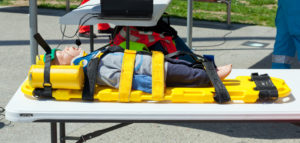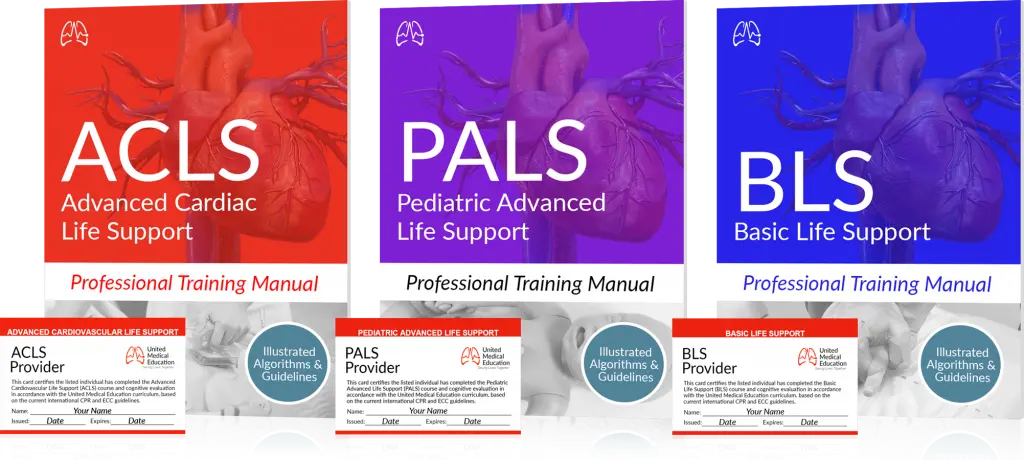The heart of a parent skips a beat at the mere thought of their little one struggling with a medical emergency, especially in the confines of a school. Unfortunately, these fears aren’t entirely unfounded. With schools hosting hundreds of children daily, pediatric emergencies – from asthma and allergies to severe injuries, and even heart issues – aren’t as rare as we’d wish. This stark reality underscores the need for something substantial, something vital – Pediatric Advanced Life Support (PALS) training.
Rooted in the principles of quick and efficient management of pediatric emergencies, PALS training equips individuals with the necessary abilities to assess, diagnose, and aid children and infants facing critical health issues.
Why Schools Need PALS
It’s an undeniable fact that the health dynamics of children have been changing drastically. The rise of chronic conditions such as obesity and diabetes, coupled with growing mental health issues, are causing an alarming uptick in emergencies related to children’s health. This disturbing trend only indicates the pressing need for PALS training in schools, ensuring that the immediate response to such emergencies is efficient and effective.
PALS training arms the school staff with the knowledge and skills to handle these emergencies, equipping them to manage the precious initial minutes after a pediatric emergency until professional medical help arrives. This training can significantly increase the survival and recovery chances for a child facing a life-threatening situation.
PALS Demystified: What School Staff Stand to Gain
As a learning platform, our PALS certification course is a comprehensive program, tailored to bolster the emergency response abilities of school personnel. It ensures that those trained gain a good understanding of crucial protocols and procedures required to handle pediatric emergencies.
The training covers a broad spectrum of skills, including effective cardiopulmonary resuscitation (CPR), early recognition and intervention for respiratory distress and failure, and effective communication within a resuscitation team. The participants also get free access to practice exams to help them prepare for the PALS final exam.
In a nutshell, PALS training imparts an invaluable skill set to school personnel. It is not just about professional growth—it’s about cultivating a safer, more secure environment for our children.
PALS in Action: Making a Real Difference
PALS (Pediatric Advanced Life Support) training goes beyond the technical skills it provides. This inspires a deep sense of reassurance in parents and the community, and underlines the primary importance placed on the safety and well-being of children. This level of assurance not only strengthens the bond between schools and families but also contributes to a sense of collective responsibility for the welfare of all children.
When parents discover that a school has integrated PALS training into its system, it sends a powerful message—a message that resonates deeply with their concerns and priorities. It convinces them that the school is not only focused on education but also dedicated to creating a safe and secure environment for their children. This acknowledgment ensures trust and cultivates a strong partnership between parents and the school community.
One parent, speaking about their experience with a school that has implemented PALS, expressed their gratitude by saying, “Knowing that there are trained individuals who possess the knowledge and skills to respond effectively in an emergency, gives me a great sense of security. It’s as if I’m there, watching over my child even when I’m not physically present.”
Also, the integration of PALS into a school’s system not only benefits individual children but also contributes to the overall safety of the entire school community. The collective commitment to preparedness and safety promotes unity and a sense of shared responsibility among parents, staff, and the broader community.
By investing in PALS training and making it an integral part of their system, schools demonstrate their commitment to providing the highest level of care to students. This dedication not only enhances the school’s reputation but also solidifies its role as a trusted institution within the community. The presence of PALS-trained staff becomes a symbol of care, responsibility, and proactive engagement, strengthening the bond between parents, schools, and the community at large.
The Confidence Instilled by PALS
The presence of PALS-trained staff in schools sends out a powerful message to parents and the community—it reaffirms that their children’s safety is paramount. This assurance can significantly enhance their trust and peace of mind.
The presence of Pediatric Advanced Life Support (PALS)-trained staff members in schools conveys a strong message to parents and the community. It reassures them that the safety of their children is a top priority. This assurance plays a crucial role in building trust and providing peace of mind to parents.
Maya, a colleague of mine, faced a challenging situation with her son. He was diagnosed with a severe respiratory condition at a young age, and his condition often led to respiratory distress which needed immediate medical attention. Naturally, Maya was always concerned about her son’s well-being, particularly when he was at school. However, her worries disappeared when she discovered a PALS-certified teacher who offered assistance to her son whenever he needed it.
The Legal and Health Perspective: Advocating for PALS Training
Across the country, laws and policies about emergency medical training in schools vary. In many regions, PALS certification is not a mandatory requirement. However, the tangible benefits of this training are slowly influencing changes in perspectives.
Health experts advocate strongly for incorporating PALS training in schools. Miss Dimsdale, a school teacher from Florida who recently completed her PALS training shared, “If we can get as many staff members as possible PALS-trained, we’re essentially adding an extra layer of protection for our children.”
A Future with PALS-Integrated Schools
Imagine a school where PALS training is not an add-on but an integral part of its functioning. The staff there are not just educators; they are protectors armed with life-saving knowledge.
Let’s envision a world where every school prioritizes such training, where every school personnel can confidently face a pediatric emergency, knowing they’ve been trained to provide the best possible care. That is the potential impact of PALS training in schools.
United Medical Education is committed to making this vision a reality. We invite more schools to join us in this endeavor. Remember, the training is easily accessible with a student account, and we also provide free practice exams to help you prepare for the PALS final exam. Let’s prioritize our children’s safety and make our schools even safer spaces for learning and growth.








